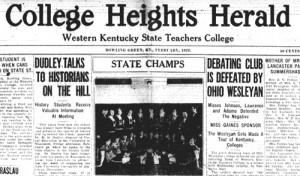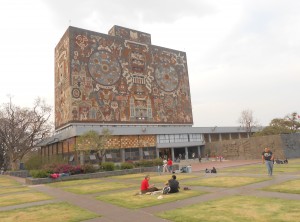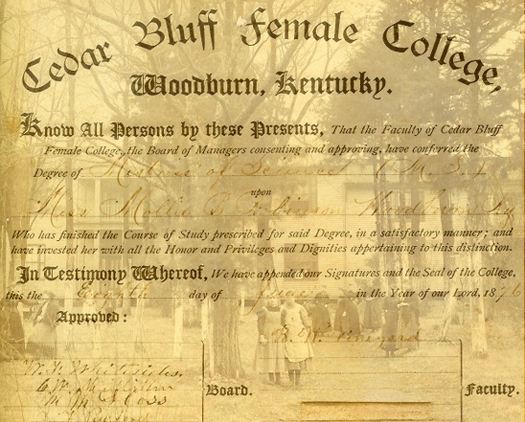
Aina Raits and family in 1949; and her notes on their clothing sizes
In 1949, WKU foreign languages professor Sibyl Stonecipher received a request from the Kentucky Division of the American Association of University Women. Post-World War II Europe was still struggling with a massive refugee problem, and the Kentucky AAUW had resolved to send food, clothing and other assistance to university women who had become displaced persons as a result of the war. Could Miss Stonecipher and the Bowling Green AAUW “adopt” a 35-year-old Latvian teacher and musician named Aina Raits and her family, then living in a refugee camp in Germany?
Within two months, Miss Stonecipher had established a correspondence with Aina. Once happy in Latvia, with a husband, house and garden, Aina, a graduate of the Latvian State Conservatory of Riga, had seen her siblings sent to Siberia and “my man . . . fallen in the war.” Now, she was passing time in the refugee camp giving concerts, teaching music, and hoping that either the U. S. or Canada would allow her, her new husband, mother, and young children to emigrate. We wish once more to be as a human and to work and live as the other people in the world, she declared in her careful English script.
Over the next two years, Aina wrote to “My dear, lovely Sibyl” of her life, past and present, and responded gratefully to the packages of food and clothing sent from America, including one from Miss Stonecipher’s colleague, Frances Richards. But still, she sighed, her family could only “wait, and wait” for a promise of work that would allow them to leave Germany. She yearned to begin life again.
Finally, late in 1951, Aina and her family emigrated to Jackson, Michigan. Miss Stonecipher not only kept in touch, but visited them twice before Aina’s death in 1977. “They are really wonderful people,” she reflected, glad for the opportunity given to her and Bowling Green’s other university women to help a fellow teacher.
Aina Raits’s letters to Sibyl Stonecipher are part of the Manuscripts & Folklife Archives collections of WKU’s Special Collections Library. Click here to download a finding aid. For other collections, search TopSCHOLAR and KenCat.







